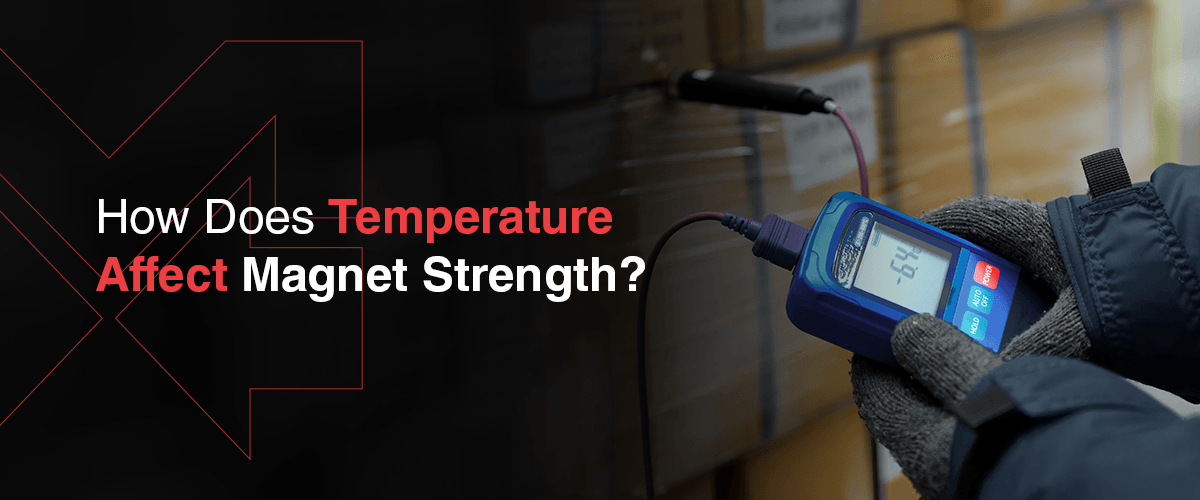
How Does Temperature Affect Magnet Strength?
When you're using magnets for applications in various operating conditions, you might wonder if temperature influences their strength and performance. The answer is that it can, but the magnets' response varies based on the specific environment. Read on to explore how temperature affects magnets in different situations.

What Is a Magnet's Curie Temperature?
A magnet's Curie temperature represents the maximum temperature the material can withstand before it loses its magnetic capabilities. Electrons' angular momentum and spin form the magnetic moment, which is the crucial element affecting magnetism's strength.
The Curie temperature on magnets measures the link between magnets and heat, identifying when a temperature can disorder magnetic moments' alignment until the magnet loses force.
How Does Cold Affects Magnets?
When a magnet is exposed to the cold, its magnetic properties become stronger. As the material's molecules get colder, they move more slowly and cause less vibration. The decreased kinetic energy causes them to form a more concentrated magnetic field.
How Does Heat Affect Magnets?
A higher temperature weakens a magnet's strength and magnetic field. As heat increases the magnet's kinetic energy and makes its molecules move faster, they become more and more sporadic. These molecules begin to misalign at higher temperatures until they're no longer facing in the aligned position, with each end having an opposite charge.
This process can potentially cause irreversible loss of magnetism if the material is heated beyond its maximum operating temperate, and the loss is permanent when it goes above its Curie temperature. However, if the heat applied to the magnet stays below its maximum operating temperature, it can return to its previous performance once it cools.
How Do Temperature Changes Affect Different Types of Magnets?
The degree to which temperature affects magnets also depends on the type of material. Cobalt materials have a higher resistance to demagnetization than neodymium magnets, which have a lower maximum operating temperature. Meanwhile, Alnico materials have relatively high thermal stability.
Ferrite is a unique type of permanent magnet that can become more resistant to demagnetization even as its temperature increases. This material is ideal for high-temperature applications because its high demagnetization resistance helps it perform well in demanding conditions.

Get High-Performance Magnets From Magnum Magnetics
Magnum Magnetics has what you need if you're looking for trusted solutions for your magnetic applications. Offering high-quality ferrite magnets and other product options, we'll address your requirements with reliable magnet solutions. Contact us today to learn more!